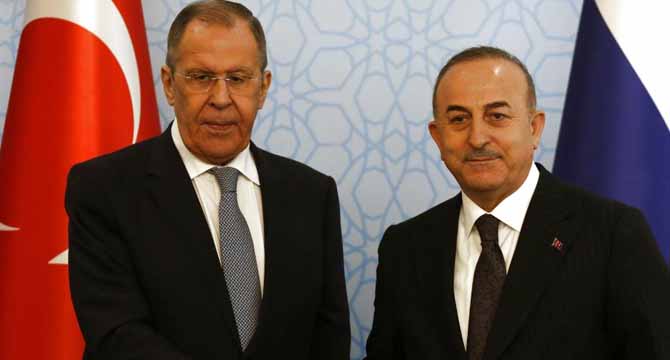ANKARA, April 8, 2023: Türkiye agrees with Russia to solve the problems concerning Russian fertilizer and grain exports so that the Black Sea grain deal could be extended, Turkish Foreign Minister Mevlut Cavusoglu said Friday.
“We attach importance to the continuation of the agreement … not only for Russia and Ukraine’s grain and fertilizer exports but also for stopping the world crisis,” Cavusoglu said at a joint press conference with his visiting Russian counterpart Sergei Lavrov in the capital Ankara, referring to the grain deal named the Black Sea Grain Initiative signed last year.
“We agree that the barriers to Russian grain and exports should be removed,” Cavusoglu said.
He said it is also important to implement the parallel memorandum of understanding between Russia and the United Nations signed in July 2022 on the issue of transporting Russian food products and fertilizers, including ammonia, to the world markets.
For his part, Lavrov said while the West has not placed sanctions on Russian grain and fertilizer exports, they were affected by an insurance problem that has hindered Russian vessels from docking in certain ports, and by a lack of access to the SWIFT system — a messaging network through which international payments are initiated.
He warned that Moscow could abandon the grain deal if obstacles to Russian shipments remained. “If there is no further progress in removing barriers to the export of Russian fertilizers and grain, we will think about whether this deal is necessary.”
“If they do not want to approach this matter honestly, they can transport the relevant products from Ukraine by highways and streams,” he said.
Lavrov added that if necessary, Russia will work on grain exports through Türkiye and Qatar outside the grain deal.
On July 22, 2022, Russia and Ukraine separately signed a document in Istanbul with Türkiye and the United Nations on grain and fertilizer exports from Ukraine and Russia to ensure supplies to global markets amid the Ukraine crisis.
The deal, initially in effect for 120 days, was extended in mid-November 2022 for a further 120 days to March 18. After that, the deal was extended again, with Russia agreeing to only extend it for 60 days.
On the Ukraine crisis, Lavrov said at the joint press conference that Russia does not refuse peace negotiations with Ukraine, but the talks must focus on creating a “new world order,” one “based on UN conditions” rather than “a unipolar world order led by one hegemon.”
“Any negotiation needs to be based on taking into account Russian interests, Russian concerns. It should be about the principles on which the new world order will be based,” he said.
The two foreign ministers also briefed the media on an upcoming fuel loading ceremony at the Russian-built Akkuyu Nuclear Power Plant in Türkiye, as well as on efforts to restore the broken relations between Ankara and Damascus.

